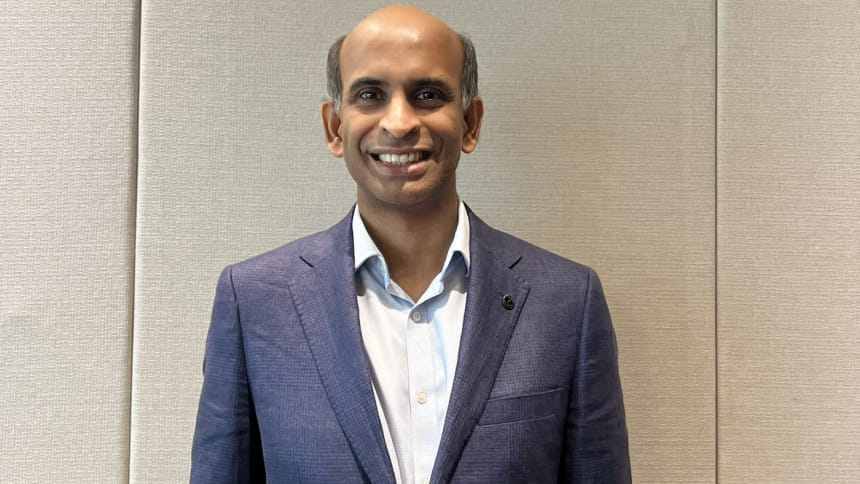Advancements in Neurosurgery: A Conversation with Dr Rao Jai Prashanth

In recent years, neurosurgery has undergone transformative changes with cutting-edge technologies redefining treatment methodologies. Dr Rao Jai Prashanth, Head & Senior Consultant of Neurosurgery at the National Neuroscience Institute, shares insights into the latest advancements and their impact on patient care.

The Role of Precision Technology in Neurosurgery
Neurosurgery is at the forefront of medical innovation, integrating both hardware and software advancements. "Robotics, navigation systems, and improved precision surgery techniques allow for smaller incisions and reduced damage to brain tissue," Dr Rao explains. This enhances tumour removal and access to critical areas of the brain. Additionally, software-driven predictive modelling aids in optimising treatment plans, ensuring better patient outcomes.
Dr Rao also highlights emerging materials that may support neural tissue regeneration. "Every surgical procedure causes some degree of damage. The use of gel polymers and other regenerative materials could aid healing, reducing complications," he notes.
Stroke Management: The Need for Speed
Stroke remains a major global health challenge. "Time is brain," Dr Rao emphasises, stressing the importance of early intervention. Advances in stroke care include minimally invasive thrombectomy techniques, which significantly improve survival rates and recovery outcomes. However, Dr Rao acknowledges the challenge of timely intervention, particularly in larger countries where access to stroke centres may be limited.
"While Singapore benefits from an advanced, centralised system, in countries like Bangladesh, delays in reaching specialised centres reduce the effectiveness of these treatments," he says. The development of drugs that can be administered at emergency points to protect brain tissue before intervention could be a game-changer.
The Rise of Minimally Invasive Surgery
Minimally invasive surgical techniques are revolutionising neurosurgery, reducing hospital stays and improving recovery times. "The two key requirements for these techniques are superior lighting and depth perception. Recent improvements in imaging and endoscopic technologies have made spinal and brain surgeries less invasive and more precise," Dr Rao explains.
One major challenge remains bleeding control. "If bleeding occurs, visibility is compromised. However, new adjuncts and hemostatic agents are improving our ability to manage bleeding in minimally invasive procedures," he adds.
Neurosurgery's Role in Epilepsy and Brain Tumour Treatment
For epilepsy patients, surgery offers the possibility of a cure rather than lifelong medication. "We assess patients to determine if surgical intervention can eliminate seizures, improving their quality of life," Dr Rao says. Multidisciplinary teams, including neurologists, neurosurgeons, and psychologists, play a crucial role in these assessments.
When it comes to brain tumours, advancements in non-invasive diagnostic techniques are making biopsies safer. "Ultrasound-based tumour resonance and liquid biopsies can provide critical molecular markers, reducing the need for traditional invasive procedures," he explains. Additionally, neurosurgeons are increasingly involved in rehabilitation, using brain-computer interfaces and neurostimulation techniques to improve post-operative recovery.
Artificial Intelligence and the Future of Neurosurgery
Artificial intelligence (AI) is shaping the future of neurosurgery. "With improved MRI imaging and brain mapping, AI can assist in creating surgical roadmaps," Dr Rao states. However, he emphasises that human oversight remains crucial. "A neurosurgeon must still make the final decision. While AI enhances precision, the responsibility of treatment planning cannot be left solely to machines."
The integration of AI with robotics has the potential to refine neurosurgical techniques further. "In the future, we may see AI-guided robotic surgeries providing even greater accuracy in complex procedures," he predicts.
Challenges in Neurosurgical Care: A Global Perspective
Despite advancements, challenges remain, particularly in developing nations. "Limited neurosurgical expertise, delayed referrals, and financial constraints prevent timely intervention for many patients," Dr Rao observes. In Bangladesh, for instance, economic dependency among senior citizens often leads to delays in seeking neurosurgical care.
He also highlights the need for interdisciplinary collaboration. "In many countries, communication between neurology and neurosurgery remains fragmented. Streamlining this collaboration could significantly improve patient outcomes," he suggests.
Conclusion
Neurosurgery is evolving rapidly, with AI, robotics, and minimally invasive techniques leading the way. However, Dr Rao stresses that technological advancements must be coupled with systemic improvements to ensure equitable access to these innovations. "Technology alone isn't enough. Early diagnosis, public awareness, and a well-integrated healthcare system are equally important in improving neurosurgical outcomes worldwide."
His insights paint a hopeful picture for the future of neurosurgery, where technology and human expertise combine to provide safer, more effective treatments for patients around the globe.

 For all latest news, follow The Daily Star's Google News channel.
For all latest news, follow The Daily Star's Google News channel. 



Comments